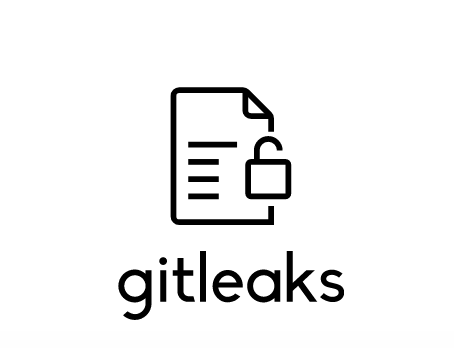This guide will run through a few examples of gitleaks.
Gitleaks comes packed lots of tunability, but for the majority of users running gitleaks in default mode against a single repo is enough.
gitleaks --repo=https://github.com/gitleakstest/gronit
This example runs gitleaks against a test repo I set up hosted on github. Gronit contains two AWS keys leaked.
gitleaks --repo=https://github.com/gitleakstest/gronit -v
You may want to view the output of the audit as gitleaks processes the repo(s). Turn on verbose mode with -v or --verbose
gitleaks --repo=https://github.com/gitleakstest/gronit -v --redact
Maybe you want to know which lines contain secrets but don't want the secret content logged. You can use --redact which will result in output looking like:
{
"line": "REDACTED",
"commit": "cb5599aeed261b2c038aa4729e2d53ca050a4988",
"offender": "REDACTED",
"reason": "AWS",
"commitMsg": "fake key",
"author": "Zachary Rice \u003czricethezav@users.noreply.github.com\u003e",
"file": "main.go",
"branch": "refs/heads/master",
"repo": "gronit"
}
gitleaks --repo=https://github.com/gitleakstest/gronit --report=gronit_results.csv
Perhaps you want to run an audit on a bunch of repos one by one and save reports for each repo. You can accomplish this by using the --report= option. Your report must end in .csv or .json.
gitleaks --repo=https://gitlab.com/relaxeaza/twoverflow.git
Gitleaks works not only for github repos but for all git repos so long as you have a valid address.
gitleaks --repo=https://github.com/gitleakstest/gronit --branch=dev
gitleaks --repo=https://github.com/gitleakstest/gronit --threads=8
The --threads= option specifies the max number of threads spawned.
Gitleaks does offer some Github exclusive features such as owner (org/user) scanning as well as PR scanning. Both of these features require the user to set GITHUB_TOKEN in their environment as these features depend on the Github API. Generate a github api token here: https://help.github.com/articles/creating-a-personal-access-token-for-the-command-line/
gitleaks --github-org=gitleakstestorg
NOTE: you may want to use --disk if the organization you are auditing is large
gitleaks --github-org=gitleakstestorg
NOTE1: you may want to use --disk if the organization you are auditing is large
NOTE2: you may want to use --log=debug to see which repos you will be auditing.
gitleaks --github-org=gitleakstest
NOTE: you may want to use --disk if the user you are auditing is large
NOTE2: you may want to use --log=debug to see which repos you will be auditing.
gitleaks --github-pr=https://github.com/gitleakstest/gronit/pull/1
This could be easily hooked into a CI process with docker...
docker run --rm --name=gitleaks -e GITHUB_TOKEN={your github token dont hardcode this!!!} zricethezav/gitleaks --github-pr=https://github.com/gitleakstest/gronit/pull/1
Setting the --github-pr= option does not clone the entire repo. Gitleaks uses the github API to generate patches for each commit in the PR and audits those commits.
gitleaks --github-org=gitleakstestorg --exclude-forks
This will exclude audits on forks for github orgs and users
Let's take a look at some of the more advanced features gitleaks has to offer... We will be editing a gitleaks config .toml file. In order for gitleaks to read the custom config you must run gitleaks with the config= option or have GITLEAKS_CONFIG env var set to the path of your .toml config.
gitleaks --config=gitleaks.toml
Gitleaks comes loaded with a few default secrets to scan for, but you might want to add more. You can do this by adding to the regexes in a .toml config file.
# gitleaks.toml
title = "gitleaks config"
[[regexes]]
description = "AWS"
regex = '''AKIA[0-9A-Z]{16}'''
# adding your own
[[regexes]]
description = "zachs secret"
regex = '''terces shcaz'''
# another one!
[[regexes]]
description = "1024-bit hexadecimal string (possible hash, key or token)"
regex = '''['\"][0-9a-fA-F]{256}['\"]'''Say we are auditing a repo containing some audio editing software. If I were a betting man, I'd bet that the repo has some audio files. We want to ignore these files as we can safely (not really) assume they do not contain secrets. How do we do this? Simply supply a gitleaks config.
# gitleaks.toml
title = "gitleaks config"
[[regexes]]
description = "AWS"
regex = '''AKIA[0-9A-Z]{16}'''
[whitelist]
files = [
"(.*?)(wav|wma|mp3|m4a|flac)$"
]This config tells gitleaks to search for AWS keys and not to include wav, wma, mp3, m4a, flac files in the audit.
Maybe there is some repo that you purposely want to ignore some commits for whatever reason. You can do this with
[[regexes]]
description = "Facebook"
regex = '''(?i)facebook.*['\"][0-9a-f]{32}['\"]'''
[whitelist]
commits = [
"21b59fab5d01942b389fcd6573bd17c61a1077fe",
"9272e1e556ca6a6721fedf7beb0066be5a55c6e3",
]This config sets gitleaks to search for facebook keys but ignore commits 21b... and 927... if the scan runs into those SHAs.
You might want to search for all AWS keys but ignore a subset of them (im not sure why you would do this... but you might)
[[regexes]]
description = "AWS"
regex = '''AKIA[0-9A-Z]{16}'''
[whitelist]
regexes = [
"AKAIMYFAKEAWKKEY",
]An audit with this config would see that a line contains an AWS key, then check if there are any regex whitelists. If there are regex whitelists, then ignore that line. In this case, if we have a line containing AKAIMYFAKEAWKKEY, then it would be ignored while all other AWS keys would still be picked up.
You can also whitelist branches if you are running an audit against all branches by using --all-ref.
[[regexes]]
description = "AWS"
regex = '''AKIA[0-9A-Z]{16}'''
[whitelist]
branches = [
"develop",
"preview",
]
